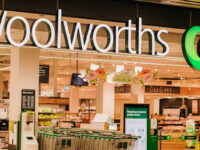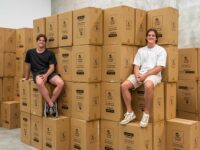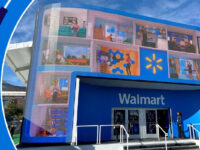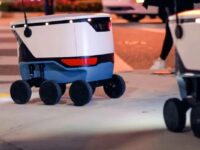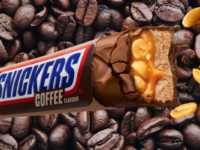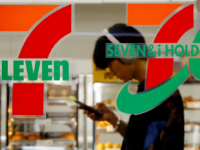7-Eleven may be known for its Slurpees and speedy service, but it’s also a business that has experimented with Instagrammable new store formats, fun new services and exclusive products. In fact, that’s the reason that it made Inside Retail Asia’s Coolest Retailers list this year. Founded in 1927 in Texas and owned by Japanese retail group Seven & I, 7-Eleven showed the world how convenience in shopping was done. Now with over 81,000 stores across 18 countries, it is continuing to find
Unlock indepth features,executive

Unlock indepth features,executive
interviews and quarterly magazines
SUBSCRIBE NOW
Already a Premium subscriber? Log in
Just for$39.95per year

7-Eleven may be known for its Slurpees and speedy service, but it’s also a business that has experimented with Instagrammable new store formats, fun new services and exclusive products. In fact, that’s the reason that it made Inside Retail Asia’s Coolest Retailers list this year.Founded in 1927 in Texas and owned by Japanese retail group Seven & I, 7-Eleven showed the world how convenience in shopping was done. Now with over 81,000 stores across 18 countries, it is continuing to find new ways to stay relevant in the marketplace.Recently, the brand partnered with Tiger Beer, to unveil a beachfront convenience store right on the sands of Palawan Beach Walk, Sentosa Island in Singapore. The store also features an ice-cold Tiger Beer reverse tap bar, exclusive Nitro Tea, an Arctic Coke machine, and of course, all-time favourites Slurpee, Mr. Softee and 7Cafe are on offer.That reverse tap process is an innovative fill from bottom beer dispensing system that eliminates waste, increases speed of service, and most importantly, increases profitability.“We wanted to make it different from our usual brick-and-mortar stores, so we introduced an inspiring new store design and concept while retaining the 7-Eleven atmosphere,” Steven Lye, managing director of 7-Eleven Singapore, told Inside Retail.Together with the brand’s design team, they came up with an innovative container store concept.So far, according to Lye, customer feedback has been positive and the specialty products have been well received.“Customers love the wide range of items available, from the reverse tap Tiger Beer and Nitro Tea to the hot food range, which includes pastries and fried snacks,” he said.It has been an encouraging year for the 7-Eleven, with an increase in the consumer count over the last couple of months, compared to 2021, especially in the tourist and commercial areas.Lye explained that this is driven largely by the easing of measures and re-opening of the country, as more people return to work and tourists return to Singapore.Market realitiesFor a brand like 7-Eleven, the recent economic headwinds that are swirling globally has definitely affected its operations in Singapore. From supply chain bottlenecks to inflationary cost pressures, the brand has been forced to recalibrate its operations to navigate these uncharted waters.“The pandemic and ongoing geopolitical tensions have resulted in supply chain disruptions and increasing costs, which has had an impact on many businesses in Singapore, especially in retail,” he said.Lye said the impact of this is still being felt today, and 7-Eleven continues to face challenges in logistics, such as shipment delays for its goods. He went on to explain that in terms of inflationary cost pressures, the business is seeing higher product costs due to increasing material and manufacturing costs. Rising logistics, labour and utility costs are also significantly impacting their operating costs. “All these factors impact business performance and how we make our decisions, as we must ensure a balance between rising costs and adjusting our product prices while continuing to provide value for our customers,” Lye stressed.Expansion still on the cardsAccording to Lye, the company’s employees are working very hard to look for opportunities to mitigate rising costs and minimise the impact on its customers. Also, despite the challenges in the marketplace, the brand remains committed to its store expansion plans.“We are always on the lookout for new sites where our stores can better serve our customers. We have more than 20 new stores this year alone compared to last year,” he noted.Moreover, Lye said that the brand is always focusing on new product developments, which is a core strategy of its business.“We aim to bring excitement to customers through our new “ready-to-eat-food” offerings and other interesting products that we bring in from all over the world,” he explained.Consumer behaviourSingapore, like other Southeast Asian nations, has undergone a massive evolution in terms of consumer purchasing habits during the last two years.At the height of the pandemic, through a combination of draconian social movement restrictions and an acceleration of digital transformation, customers were doing everything online.“With consumer behaviour shifting towards spending more time at home and being on the lookout for value, we identified the opportunity to be a convenience store that offers customers basic grocery essentials for quick household top-ups,” Lye explained.In 2020, the brand introduced its grocery range at affordable prices in more than 200 neighbourhood 7-Eleven stores.“This year, we further expanded our range to provide a wider variety of grocery items, including fresh fruits and vegetables and frozen goods,” he stated.Lye elaborated that the brand has noticed that the mature customer segment looks for more value and promotions in its stores, whereas the younger group of customers continues to be attracted by new and exciting products.The Singapore experienceAccording to Lye, the 7-Eleven brand now has the widest convenience store network in the country, with more than 450 stores island-wide.“Just in 2022, we have launched over 500 new products and more than 200 “ready-to-eat” items that have received amazing customer feedback,” he said.Apart from the beachfront container store at Palawan Beach, the brand also unveiled Singapore’s first 7 Eleven x Coca-Cola store at Raffles Place and a 7-Eleven x Heineken concept store at Paya Lebar Square.“We are always on the lookout for exciting collaborations and new concepts to delight our customers. Sustainability initiatives are also important to us; I believe that when a company does well, we need to do good for the community,” he stressed.Lye noted that the brand has also seen consumer preferences shifting towards healthier living and as a result, the brand is expanding its “better for you” offerings that are more focused on sustainable foods and products that are better for health and the environment.International innovationCreativity plays a big role in the 7-Eleven international business. In Hong Kong, not only has 7-Eleven jumped on the plant-based bandwagon, it has stepped into the world of fashion, with a collaboration between a leading Japanese denim label, FDMTL, and the classic cartoon Peanuts. The brand has pushed the boundaries in other markets, such as the recent launch of its two-storey flagship store, 7 Cafe, in Bandar Puteri, Puchong, Malaysia. Inside, the store features a mini bookstore, along with an assortment of desserts and cakes from a contemporary artisan matcha brand. In Japan last year, 7-Eleven even conducted a demonstration of a robot that rode an elevator to deliver products from an outlet to consumers who placed orders inside the building. The 76-centimetre robot can carry about 10 kilograms of goods and run around autonomously. Customers placed online orders, then convenience store staff put the products inside the robot. Then the robot set off to deliver the items, guided by a 3D camera and ultrasonic waves. When it arrived at its destination, it sent a password to the customer’s phone. By typing in the password on the robot’s LCD display, customers just opened its lid to find their item.



